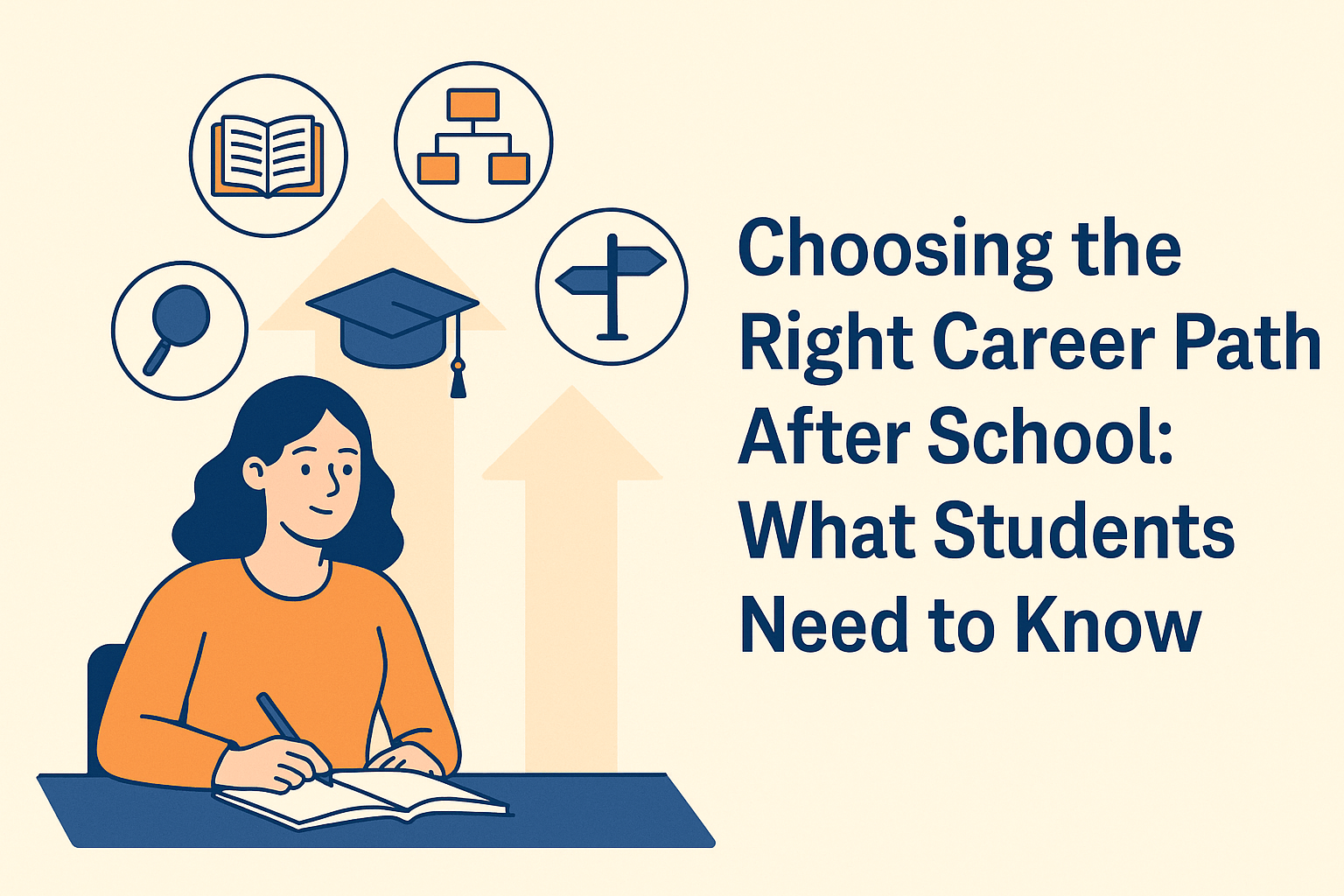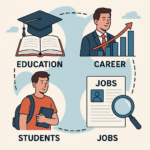Finishing school marks a turning point in a student’s life. It brings with it several decisions that shape the future—one of the most important being the choice of career. With countless streams, entrance exams, and institutions across India, navigating these options can be overwhelming. This article offers clarity on how students and parents can approach career planning systematically, especially in the Indian context where academic and professional expectations often run high.
The Importance of Informed Decision-Making
Choosing a career isn’t only about what seems lucrative or popular. It must take into account a student’s interests, strengths, learning preferences, and long-term goals. A mismatch between personal abilities and career requirements can lead to stress, lack of motivation, or even an early exit from the chosen field.
Guidance at this stage acts as a bridge between aspiration and informed action. With structured counselling and access to educational resources, students can better understand their available options.
Read more:- Personality Development
Career Counselling: A Smart Starting Point
Career counselling services have grown significantly in India over the past decade. These platforms are designed to assist students in understanding which academic streams and professional paths align with their aptitude. Psychometric tests, one-on-one counselling sessions, and detailed career reports help in narrowing down options.
Platforms like Book Your Career provide a wide spectrum of information about courses, colleges, entrance exams, and industry insights. They play a pivotal role in guiding students based on their academic background, personal goals, and the latest educational trends.
Understanding Course Categories and Their Prospects
India offers a diverse set of educational streams, each with its own career roadmap. Here are some common categories students consider after 10th and 12th grade:
-
Science Stream: This stream remains a preferred choice for students aiming for engineering, medicine, IT, or research-oriented fields. Within this stream, options like PCB (Physics, Chemistry, Biology) and PCM (Physics, Chemistry, Mathematics) lead to varied directions—from biotechnology and pharmacy to civil engineering and AI.
-
Commerce Stream: Students interested in finance, business, accounting, or economics often pursue commerce. Courses like B.Com, BBA, CA, and CS fall under this umbrella. Digital marketing and e-commerce have also opened new avenues within this stream.
-
Arts and Humanities: Often underrated, this stream is home to subjects like literature, history, psychology, sociology, and political science. It prepares students for careers in journalism, education, law, social work, and public administration.
Each stream holds equal potential when approached with the right mindset and preparation.
Entrance Exams as Milestones, Not Roadblocks
Entrance exams in India are often seen as gatekeepers to prestigious institutions. While competitive, they are also opportunities to measure one’s skills against set academic standards. Preparing for them requires discipline, time management, and access to the right material.
For instance, students targeting engineering and architecture fields are likely to sit for the Joint Entrance Exam, which plays a crucial role in determining admission to IITs, NITs, and other institutions.
Similarly, exams like NEET, CUET, CLAT, and NIFT cater to other disciplines. Each test has its own eligibility criteria, syllabus, and evaluation process, making it essential for students to start early and remain consistent in their preparation.
Vocational Courses and Alternative Education Paths
Not every student is inclined toward a traditional university education. Vocational courses offer practical knowledge and immediate job opportunities. These include fields such as hospitality, graphic design, fashion, animation, and health care.
Such programs are ideal for students who want to begin working sooner or develop specific skill sets. They’re also helpful in providing hands-on experience, which can be a valuable asset in any field.
Distance education and online courses are gaining popularity too, especially in light of recent digital shifts. Many reputed Indian and international institutions now offer certificate and diploma courses through online platforms. This format works well for students balancing other responsibilities or looking for flexibility in learning.
Role of Parents in Career Planning
Parents are often deeply involved in shaping their children’s education journey in India. While their support is essential, it’s important that this involvement is balanced with open communication. Instead of imposing their own aspirations, parents should encourage their children to express their interests and explore possibilities.
Career planning conversations should focus on understanding, not pressure. Discussing goals, reviewing aptitude results, and attending counselling sessions together helps create mutual respect and trust between students and parents.
Importance of Staying Updated
The career landscape is continuously changing. Fields that were once niche—like ethical hacking, machine learning, or game design—are now in high demand. At the same time, traditional professions like law, teaching, and public service are evolving with technology and policy changes.
To keep up, students must stay updated through blogs, government portals, education expos, and trusted websites like Book Your Career. These platforms provide timely information about admission dates, form deadlines, new courses, and job trends—helping students plan better.
Key Factors to Evaluate When Choosing a Course
When finalising a course or career, students should evaluate:
-
Personal interest and aptitude
-
Course content and duration
-
Future job opportunities
-
Institution reputation and placement history
-
Cost of education and scholarship availability
-
Location and living arrangements (for those relocating)
Having clarity on these aspects can reduce confusion and prevent hasty decisions.
Long-Term Vision and Flexibility
Students should remember that no career choice is entirely final. Interests may evolve, and new opportunities may emerge along the way. While the first step after school is important, it’s not the last decision one will make.
Flexibility and lifelong learning have become central to modern career success. It’s not unusual for people to switch industries, upskill mid-career, or build multiple income streams based on changing interests or market demands.
By focusing on building a strong foundation now—through the right course and a steady mindset—students increase their chances of professional fulfilment later.
Final Thought
Choosing a career after school is a significant moment, but it doesn’t have to be intimidating. With access to the right guidance, tools, and support systems, students in India can make confident decisions aligned with their ambitions and abilities. Platforms like Book Your Career simplify this journey, offering clarity when it matters most.






